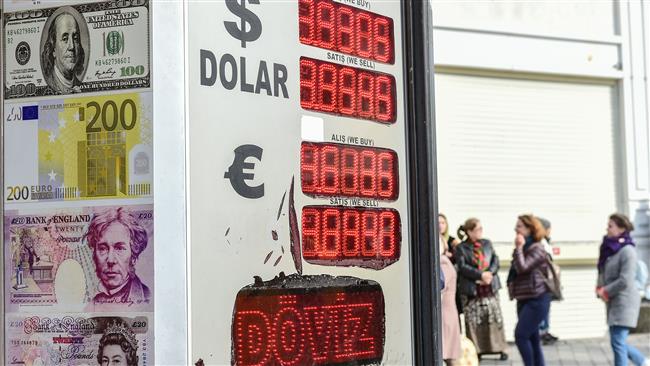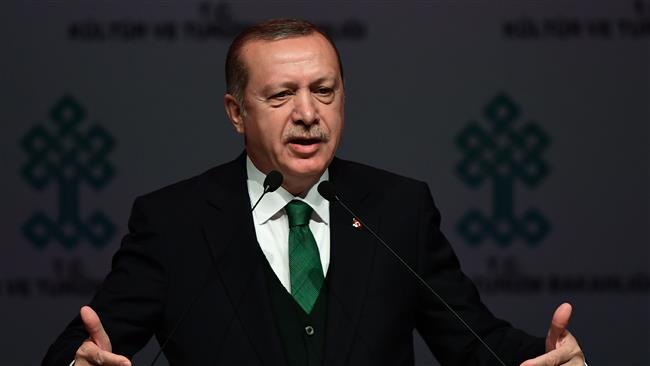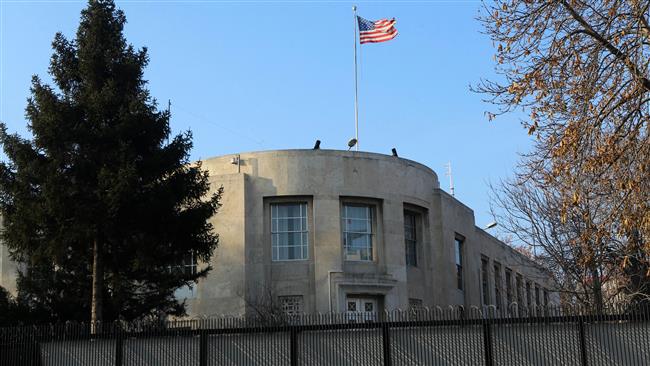Turkey’s lira hits record low against dollar
The embattled Turkish lira hit record lows against the dollar on Tuesday as investors took fright over an impending trial in the United States and changes to banking regulations.
The Turkish lira lost over one percent in value to trade at 3.97 to the dollar late morning, testing the never-before-reached 4.0 ceiling, before rallying slightly to 3.95 in the early evening.
The lira is the worst-performing emerging markets currency in the world this year, losing 12.38 percent in value against the greenback since January.
The latest drop followed the delay on Monday of a scheduled trial in the United States of Turkish-Iranian gold trader Reza Zarrab and Mehmet Hakan Atilla, the deputy chief executive of Turkish lender Halkbank, accused of defying US sanctions on Iran.

The trial has caused anger in Ankara, with the Turkish government on Monday calling the case "political".
Government spokesman and Deputy Prime Minister Bekir Bozdag claimed the suspects were being held like hostages and described the trial as a "plot against Turkey".
New York Judge Richard Berman announced that jury selection, which had been set to begin Monday, was delayed until November 27. Opening statements are now scheduled for December 4.
There are concerns over the impact of the case on US-Turkey relations and the possibility of fines against Halkbank in the event of a guilty verdict.
The NATO allies' ties have already been strained over Washington's support for a Syrian Kurdish militia that Turkey views as a "terror" group as well as the failure to extradite a Pennsylvania-based Muslim cleric blamed for last year's failed coup.
Meanwhile, the Turkish authorities also announced new regulations in the "merger, division, transfer of assets and exchange of bank shares" in the Official Gazette on November 16, state-run news agency Anadolu reported.
As the lira weakened, the Turkish central bank announced that banks would not be able to borrow funds overnight in the interbank money market from Wednesday.
However, the central bank may feel constricted from making any drastic move in raising rates after President Recep Tayyip Erdogan lashed out at it last week again over its refusal to cut interest rates.
He said this was causing high inflation, a statement that flew in the face of conventional economic wisdom.
Usually, inflation should go down as interest rates are raised as this softens demand and weakens money supply growth in an economy.
The central bank's last change in rates was in January while inflation was at 11.9 percent last month, the highest in 2017 so far, and making a mockery of its 5 percent inflation target.
(Source: AFP)
‘All wars have rules. All of those rules have been broken’ by Israel
VIDEO | Report flags India’s violation of rights of Rohingya detainees
Turkey's foreign minister meets Syria's de facto leader in Damascus
'Next to impossible' to rescue patients from Gaza's Kamal Adwan Hospital: Director
VIDEO | Vietnam current prosperity
Report blames gasoil exports for shortage at Iranian power plants
VIDEO | Hind Rajab Foundation names Israeli war criminals vacationing after Gaza genocide
VIDEO | Australians rally for Gaza ahead of Christmas festivities















 This makes it easy to access the Press TV website
This makes it easy to access the Press TV website